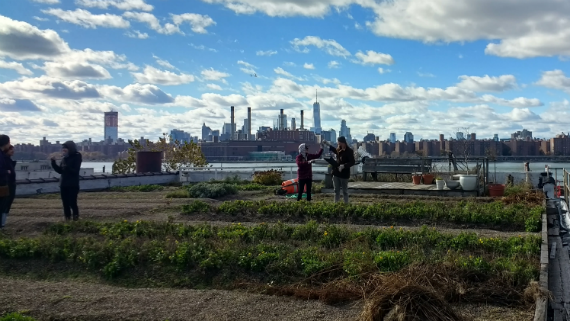The role of cities in delivering food security and sustainability outcomes: a social-ecological perspective
This event has ended.
Contact
Add to calendar

This workshop is linked to the event “The new urban food agenda”.
Food constitutes a vehicle to understand and address current social, economic, health and environmental crises operating at different scales. Examples ranging from global food price volatility to the increase of food banks in our neighbourhoods, from climate change to biodiversity losses, and rising levels of obesity sitting alongside staggering undernutrition numbers, situate Sustainability and Food Security (SFS) as one of the main societal challenges of our time.
At the same time, urbanisation has become a worldwide phenomenon affecting urban and non-urban areas alike and therefore cities serve as crucial sites in the process of understanding global challenges and pursuing innovative solutions. In this context, cities are reasserting their responsibility and potential in delivering SFS - that is, the provision of good food for all in environmentally, socially and culturally acceptable ways that do not compromise our future livelihoods.
This workshop brings together experts from around the world to build on our diverse knowledge and explore how different cities around the world contribute to or hinder sustainability and food security.
The workshop proposed aims to understand how different cities tackle sustainability and food security challenges by analysing:
i) their distinct social-ecological configurations: including social and ecological elements that result in different levels of health and wellbeing, prosperity and sustainability of urban ecosystems,
ii) their diverse food policies and governance systems
The workshop will consist of three interlinked spaces:
a) Presentation of a social-ecological framework to understand how cities deliver or hinder sustainability and food security outcomes. This will include presenting a specific urban social-ecological systems and their linkages to sustainability and food security outcomes.
b) Break out groups to share experiences and knowledges from different cities and how their social-ecological systems shape sustainability and food security outcomes. This discussion will help to identify:
a. what are the key social-ecological processes shaping SFS outcomes in cities? (main indicators, variables, processes needed to take into account in our analysis)
b. what have been effective governance interventions and why? What hasn’t worked and why?
c) Final group discussion to share results and collectively reflect on the following:
a. Is an urban social-ecological framework useful to understand urban food security and sustainability dynamics? Is it useful as well to design interventions?
b. How can we improve this framework?
The workshop will be facilitated by Dr. Ana Moragues-Faus. International experts confirmed as participating so far include Professor Terry Marsden, Dr. Nevin Cohen, Dr. Jane Battersby and Prof. Harriet Friedmann.
This workshop is restricted to 20 participants. If you would like to participate please contact Ana Moragues-Faus on MoraguesFausA1@cardiff.ac.uk with the following information by 31 May 2018. Participants will be informed the first week of June. Practitioners and academics welcomed.
Name:
Position:
Affiliation:
Describe your current research and how it relates to the workshop. If you are working with specific cities, please name them:
There may be limited bursaries available to support travel costs of practitioners or post-graduate students.
This event is part of the Ser Cymru II Fellowship Programme.
King Edward VII Avenue
Cardiff
CF10 3WA